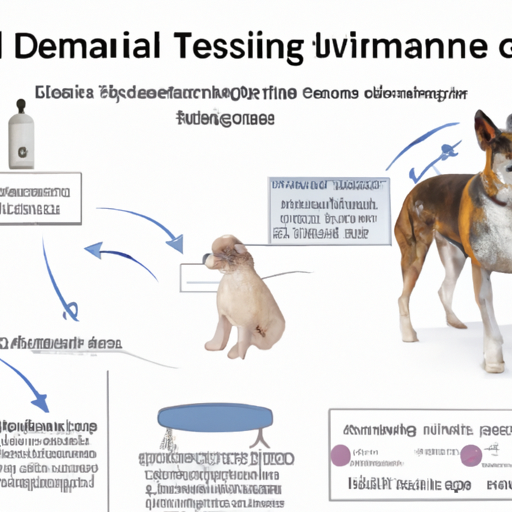Understanding Canine Distemper
Canine distemper is a highly contagious and serious disease caused by a virus that attacks the respiratory, gastrointestinal, and nervous systems of puppies and dogs. It’s your responsibility, as a caring dog parent, to safeguard your pooch from this deadly disease.
Here’s a quick glance at this virus:
| Aspect | Details |
|---|---|
| Affect on dogs | Attacks respiratory, gastrointestinal, and nervous systems |
| Contagious level | Highly contagious |
| Preventable | Yes, via vaccination |
The Importance of Distemper Vaccine
The distemper vaccine is a critical line of defense for your dog. Vaccination not only helps protect your own dog, but also helps prevent the spread of the disease, contributing to the overall health of the pet community.
- Health Protection: Distemper often proves fatal and surviving dogs may suffer irreparable damage to their nervous system.
- Community Safety: Healthy dogs contribute to a healthier pet community.
- Cost-Effective: Treating distemper can be expensive, prevention is more affordable.
What’s in the Distemper Vaccine?
The distemper vaccine is typically combined with vaccines for other dangerous diseases. This combination is often referred to as a DHLPP vaccine, which stands for:
- D: Distemper
- H: Hepatitis
- L: Leptospirosis
- P: Parvovirus
- P: Parainfluenza
When and How Often Should Dogs Be Vaccinated?
Puppies should receive their first distemper shot between six to eight weeks old. They should then follow up with booster shots every two to four weeks until they are about four months old.
For adult dogs, the frequency of vaccination depends on the dog’s health, lifestyle, and risk of exposure. Consult with your vet to determine the best vaccination schedule for your pet.
Potential Side Effects of the Distemper Vaccine
Like any vaccine, the distemper shot can cause side effects. Most are mild and temporary, such as:
- Swelling or soreness at the injection site
- Mild fever
- Decreased appetite and activity
Severe reactions are rare but can include vomiting, diarrhea, difficulty breathing, and collapse. If you notice any unusual symptoms after your dog’s vaccination, contact your vet immediately.
Frequently Asked Questions
What happens if my puppy doesn’t get the distemper vaccine?
Without the vaccine, your puppy is at risk of contracting the deadly distemper virus.
Can an older dog get the distemper vaccine?
Yes, older dogs can and should be vaccinated against distemper, unless advised otherwise by a vet.
Can my dog get distemper even after vaccination?
While the vaccine significantly reduces the risk, it doesn’t guarantee 100% protection. It’s still possible, though less likely, for a vaccinated dog to contract distemper.
Can humans contract distemper?
No, distemper is not a zoonotic disease, meaning it cannot be passed from dogs to humans.



